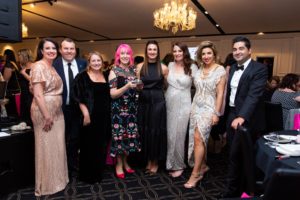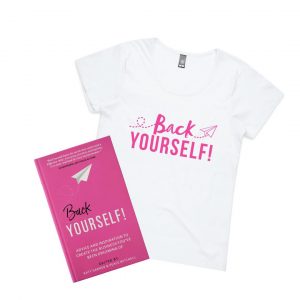Female entrepreneurs are becoming an increasingly important part of the Australian economy, with women making up just over a third (34%) of all Australian business operators.
According to the Australian Bureau of Statistics report called A Profile of Australian Women in Business, there has been a 46% increase in the number of women business operators over the past two decades. Another very interesting result to come from the report, released in 2015, is that 57% of women business operators “were pleased or delighted with the quality of their lives”.
More Australian women are taking the plunge to become business owners despite the sometimes high odds stacked against them – and more of them are happy about the choice they’ve made. That’s a great thing for the women involved, but it’s also a fantastic thing for the broader Australian economy as it unleashes the productivity potential of women.
The road has never been easy for female business owners, who have had to contend with all sorts of obstacles to get a business up and running and achieve their dreams of having a profitable and sustainable enterprise. Things have certainly, slowly, changed for the better, and women who aspire to become entrepreneurs now have any number of inspirational role models when it comes to becoming successful in business.
Of course one of the historical barriers to women starting and growing a business has been access to funding. The banking sector has done a lot of work over the past decade to catch up to the progress women have made in the realm of entrepreneurship.
However, from the perspective of many female entrepreneurs there is a belief that they face a tougher challenge than their male counterparts in securing the funds they need. At St.George, we’ve tried hard to provide a range of tools and initiatives to make life easier for SMEs, especially those operated by women. We work with over 260,000 small businesses locally and understand the daily pressures they face.

These initiatives include Business Connect, which puts potential business owners in touch with our team of senior bankers to ascertain their unique banking needs. This is an example of personalised banking that takes into account the differing circumstances of customers, which is an area of particular relevance to female entrepreneurs who might not necessarily fit one of the cookie cutter moulds proscribed by some of the bigger banks.
It’s only five years ago that the word ‘mumpreneur’ started to appear in standard English dictionaries, but the concept is now well and truly part of our economy and society. And while not all female entrepreneurs are mumpreneurs, there’s an element of flexibility in the mumpreneur concept that mirrors some of the non-traditional paths both women and men are now taking in becoming business owners. Banks have had to change how they view business funding to match that new flexibility.
It’s an exciting time to be an entrepreneur and women are leading the charge on so many fronts. There are some pretty simple steps you can take as a business owner to give yourself a better chance of securing the funding you need for your enterprise.
- Build a network of support and strengthen your ties
Banks like to see that you are out in the community and promoting your business. This shows that you are engaged and confident in your enterprise. You can do this in a number of ways, from providing in-kind support or sponsorship to local community groups or sporting teams through to making sure you have a strong social media presence. Having an involvement in your relevant industry organisations also shows that you are taking an interest and keeping abreast of the field your business is in. These types of activities show your business has a strong level of engagement and is open to new opportunities.
- Be organised and financially aware
Running a small business does not make you an accountant, even though you are sometimes expected to know some of the things an accountant would. There are a lot of responsibilities and expectations placed on small businesses by the likes of the ATO and these can be daunting. Make use of the advice on offer from banks like St.George and, of course, find yourself a trusted accountant. That’s two things you can do to make sure you’re being financially prudent about your business affairs, but also make an attempt to understand your finances. Putting aside a little time to look over the numbers every month means you have a far better understanding of the health of your business, which means your banker can better understand your financial position.
- Explore your funding options
Banks have a range of finance products for small businesses and it’s always worthwhile speaking to your banker about which is best for you. It can be easy to be overwhelmed by the number of options available these days, so always keep in mind why you are seeking funding.
Along with the suite of products offered by banks, such as business credit cards and loans, there are also government grants that some businesses might be eligible to apply for. Government grants are usually very industry specific and the application process can often be quite involved, but it might pay to see if your business qualifies.
Another great source of potential funding is through the St.George Kick Start Your Start-Up Grants program, with a total of $100,000 to be awarded to entrepreneurs to help turn their business dreams into reality.
As part of St.George’s partnership with TEDxSydney, the 12 finalists will have the opportunity to bring their business ideas to life with an elevator pitch at TEDxSydney in front of judges and a live audience on May 25.
About our Ausmumpreneur Expert :

Dubbed as “one of the nicest guys in banking” by Ausmums – Stuart Zalunardo has been helping businesses for over 28 years with a zest for start ups and the SME business space. In June 2014, Stuart was made Head of SME Banking for St.George Banking Group (St.George, Bank of Melbourne BankSA). He’s responsible for developing a successful and dynamic SME Business Banking team – which includes over 160 bankers nationally, all focused on supporting the growth of SME’s in Australia. With a commitment to lead and help young people succeed, he undertakes various mentoring programs and is also actively involved with the Cancer Council of NSW.
Married to Katherine (who was an Ausmum in her time), with two fabulous children – Stuart’s weekends are often occupied with children’s sport. However, when time permits, he does enjoy playing golf and trying to keep fit playing soccer and walking Harry (the dog).



